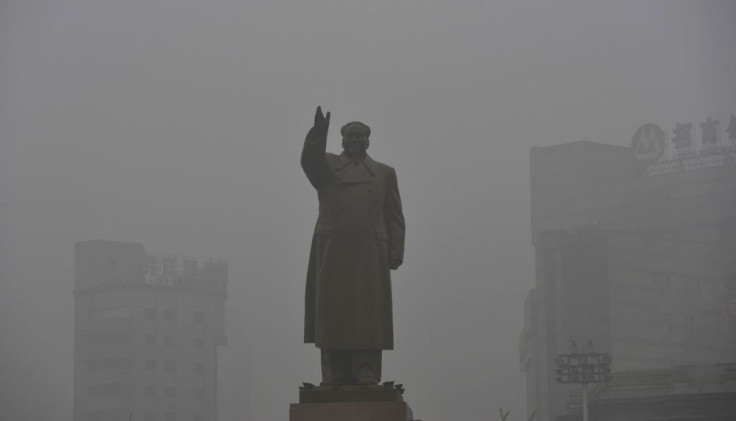Global Warming In China: ‘Wealth Accumulation’ Will Amplify Climate Disasters In China, Says Country’s Top Weather Scientist

Climate change by the close of this century could lower agricultural output, increase droughts and threaten major infrastructure projects in China, the country’s top weather scientist said. Zheng Guogang’s comments to the nation’s official Xinhua News Agency constituted a rare public admission that global warming poses significant risks to China, according to BBC Asia analyst Michael Bristow.
Although the Chinese government has agreed to cut emissions of greenhouse gasses that have been shown to lead to global warming, it generally skirts discussions of the causes and effects as related to China itself. This month, the government banned “Under the Dome,” a documentary about the country’s pollution problems by well-known Chinese news anchor Chai Jing, because of concern it would lead to a public backlash over the smog in the nation’s urban areas.
Comments made this week by China’s meteorological scientists illustrates progress in the country’s acknowledgment of its role in global warming. But the government’s move to ban the smog documentary likewise shows the limits of its willingness to allow the public to participate in the debate.
“To face the challenges from past and future climate change, we must respect nature and live in harmony with it,” Xinhua quoted Guogang as saying during a series of events in advance of World Meteorological Day Monday. “We must promote the idea of nature and emphasize climate security.” Guogang said global warming will threaten major Chinese infrastructure projects, such as the massive Three Gorges Dam in Hubei province, the world’s largest power station in terms of capacity.
As in previous years, Chinese weather officials have spent much of the past week providing weather-related educational materials to schoolchildren, including information about how to prepare for natural disasters. But they also have increased their commentary about global warming and its threat it poses to China. The country appears to be carefully moving toward more public acknowledgment that its rapid economic development is creating significant environmental challenges.
“By the end of the 21st century, there will be higher risks of extreme high temperatures, floods and droughts in China,” the China Meteorological Administration said in a statement last week, when it released an annual assessment of climate change. “The population growth and wealth accumulation in the 21st century is projected to have superposition and amplification effects on the risks of weather and climate disasters.”
China, the world’s largest emitter of greenhouse gasses, expects its carbon emissions to peak by 2030, but it has yet to establish targets for reducing greenhouse gases. China overtook the U.S. as the top producer of global-warming pollution in 2006, according to the Netherlands Environmental Assessment Agency. In November, the U.S. and China pledged to set carbon-emission limits. But China has said it has a right to weigh environmental costs with the need for economic development like any other country.
“It is the basic right of the people to pursue a moderately comfortable life and improve their living standards. We need to balance many factors and move on step by step,” China’s government has said, as BBC News reported.
“Under the Dome” was released Feb. 28. It was watched 150 million times before the government moved to ban the documentary in China just a week after its release. The film has been compared with “Silent Spring,” the 1962 book by marine biologist Rachel Carson about the dangers of the pesticide DDT that largely spurred the U.S. environmental movement.
In “Under the Dome,” Chai discusses China’s air-pollution problems in personal terms that touched a nerve among millions of urban-dwelling Chinese, some of whom spend multiple days each year wearing face masks and are told at times to remain indoors for their own safety. Sales of air purifiers spiked after the documentary was released, Reuters reported.
Watch the first part of “Under the Dome” with English subtitles here:
© Copyright IBTimes 2025. All rights reserved.






















